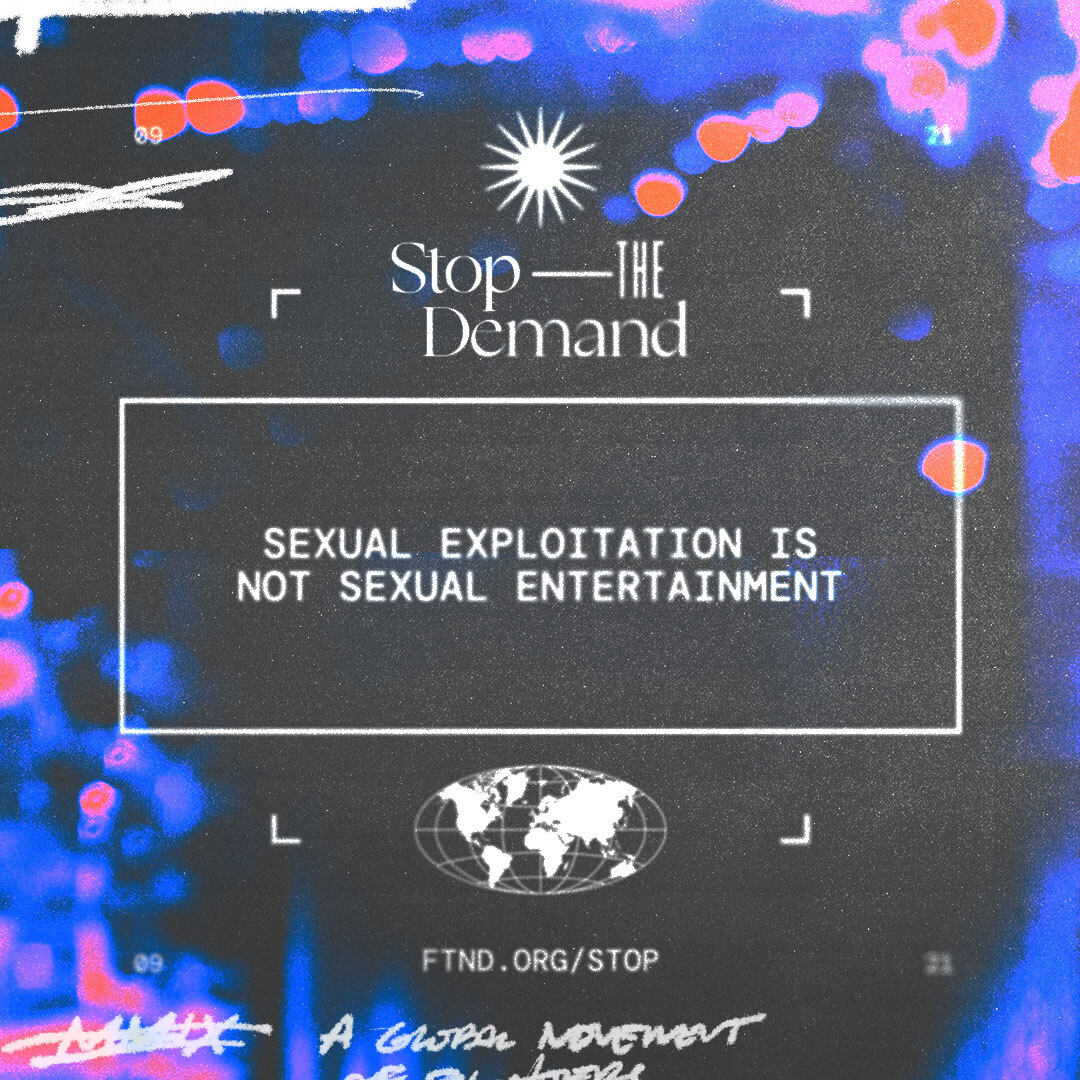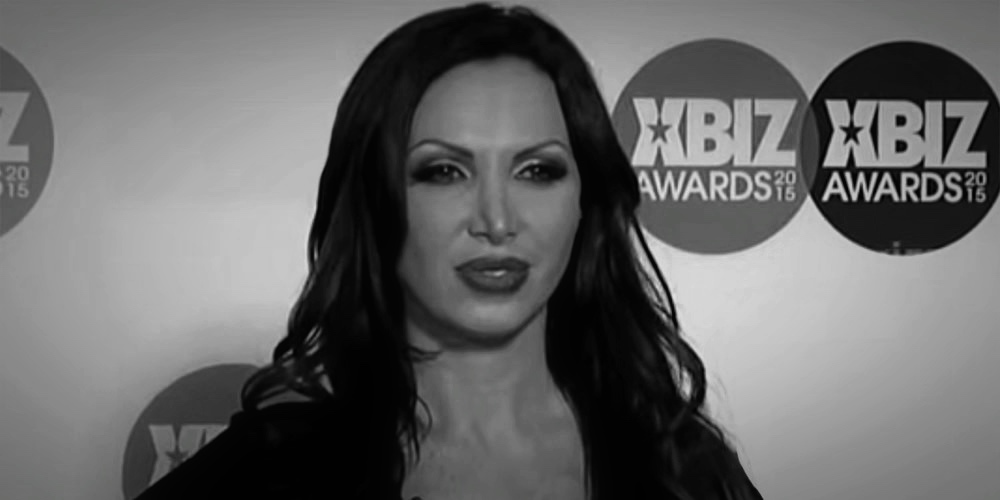Cover image credit to YouTube/MaximoTV. 5 minute read.
You might recognize the face of the porn performer in our header photo—her name is Nikki Benz, and she alleges that she was severely abused on a mainstream porn set. After speaking out, the fallout of her career has been devastating.
Is there a formal system for reporting abuse?
You’ve probably heard the plea of our times to be a mindful consumer, practicing awareness of the products and services that make up our 21st-century lives and where they originate. We think as a society about the ingredients in our food and the ethical sourcing of our clothing.
Some arenas get less examination, though.
Here at Fight the New Drug (FTND), we talk often about the need to consider what goes into making porn. What goes on behind the scenes of a hardcore porn production? Turns out, there are a lot of things under the surface that are more than problematic.
One of the most disturbing realities of the porn industry’s ecosystem is the abuse that performers can sometimes face. Unfortunately, it’s pervasive. And when you look closely, you find that there is actually no formal system for reporting and addressing that abuse.
What’s worse? Those who report abuse publicly are often blacklisted and ostracized in the industry.
An industry built on abuse
The prevalence and normalization of abuse in the industry can be shocking for the average consumer.
For example, there are top porn industry agents like Derek Hay who take advantage of their signed performers. He’s specifically been accused of manipulating his female clients into exclusive agency agreements and then using his “power to coerce them into…unwanted and in some cases unlawful sexual relations with himself and others.” If those women tried to speak up and find justice, he allegedly destroyed their entire careers through financial control and industry blacklisting.
Rashida Jones’ first famed documentary Hot Girls Wanted explores the behind-the-scenes world of amateur porn. It starts with barely-of-age girls, wanting to break loose, finding media job ads on Craigslist and flying to Miami. Once they get there, though, it’s often different than what they expected—a few of the girls admitted they weren’t sure it was porn until they showed up in Florida.
The film highlights agent Riley Reynolds, who was accused numerous times of financial exploitation, violence, and aggressive abuse. Like Hay, Reynolds uses his role of authority in these young girls’ lives, as well as his legal contracts with them, to manipulate and control them from leaving the abusive situation.
Hay and Reynolds are just two examples out of so many more who have utilized their positions in the industry to exploit and abuse others.
Not to mention porn that fetishizes real issues of abuse. There’s the trending “casting couch” genre, which involves the fantasized practice of often naïve performers showing up to what they think is an official interview and being coerced into performing sexual favors for the “director” in exchange for production roles.
It’s usually scripted, in most cases, and the performers know what the scene is before they’re shooting, but it’s still problematic.
In essence, someone goes in for something she thinks is legit and ends up humiliated and virtually raped on camera. It’s then peddled as porn. This genre normalizes and fetishizes the real issue of coercive sex in the industry, creating an atmosphere that celebrates abuse, even if that abuse is acted out. This is one of the many ways porn often thrives off of violence and dehumanizing domination.
Story after story arises of abuse on set. Check out these ex-performers who tell about the horrors they faced on set. Other online platforms have written exposés on the terrible abuse that is not being systematically addressed.
These are issues the average consumer has no idea about, but abuse happens all the time on porn sets around the world.
Related: Dozens Of Bathroom Spycam Videos From US Navy Vessel Reportedly Uploaded To Pornhub
Stranded in a nightmare
Ultimately, the cycle of abuse has no moderator. Exploitation is so ingrained in this system that young girls and women (also boys and men, but less often) don’t just find themselves roped into a seedy world of commercial sex—they find themselves held in as if with some centrifugal force.
Abuse is deeply woven into the fabric of today’s porn industry—not only as fetishized violent genres but also as legitimate issues—so it doesn’t serve the industry’s interest to crack down on it. One porn site, ManyVids, created a free mental health hotline for performers as a hopeful solution after the many tragic performer deaths in 2018. But this leaves it up to the victims to take action, and doesn’t proactively address the root issue of abuse and violence as job hazards in the industry.
See how many layers there are in addressing this urgent problem? Performers are habitually demeaned, abused, and exploited, with no real means to report it without backlash and hold abusers accountable.
The industry does not protect them. In fact, in some cases, the industry profits from violence because of the growing consumer demand for extreme content—take the case of award-winning Nikki Benz for example. What’s more, performers often don’t realize what’s happening to them until it’s too late, and when they attempt to stand up for themselves, they are blacklisted and can no longer find work, sometimes resorting to selling sex to survive.
(Note: many performers often struggle to find sustainable work outside of the commercial sex industry because of societal stigmas against them. This is usually not something many performers are informed of or fully understand before agreeing to do porn.)
This is not every performer’s experience, but it is common.
Because of the mentally escalating nature of porn that leads consumers to seek more and more extreme content in order to feel the same level of pleasure, there continues to be consumer demand for degrading, shocking material. And as long as there is consumer demand for something, it will be created.
So what can be done?
Even though exploitation-free porn is still harmful, we can definitely raise our voices for protective systems and procedures to be implemented in the porn industry. They exist for food and for corporate business, after all. Why not porn?
We need to raise awareness of the realities of violence, abuse, and the lack of accountability in the porn industry. The #MeToo movement happening in society is happening in the porn industry, too.
But even more grassroots than that, we can think critically about whether or not consuming is worth it at all. We say it isn’t—the risk of victimizing people and perpetuating abuse is too high. That’s what this movement for love is all about—shifting the demand for cheap, exploitative pleasure to a demand for meaningful, authentic love through relationships.
Consider it—many people choose to withdraw support from industries that thrive off of violence and abuse, right? Why not porn, too?

Your Support Matters Now More Than Ever
Most kids today are exposed to porn by the age of 12. By the time they’re teenagers, 75% of boys and 70% of girls have already viewed itRobb, M.B., & Mann, S. (2023). Teens and pornography. San Francisco, CA: Common Sense.Copy —often before they’ve had a single healthy conversation about it.
Even more concerning: over half of boys and nearly 40% of girls believe porn is a realistic depiction of sexMartellozzo, E., Monaghan, A., Adler, J. R., Davidson, J., Leyva, R., & Horvath, M. A. H. (2016). “I wasn’t sure it was normal to watch it”: A quantitative and qualitative examination of the impact of online pornography on the values, attitudes, beliefs and behaviours of children and young people. Middlesex University, NSPCC, & Office of the Children’s Commissioner.Copy . And among teens who have seen porn, more than 79% of teens use it to learn how to have sexRobb, M.B., & Mann, S. (2023). Teens and pornography. San Francisco, CA: Common Sense.Copy . That means millions of young people are getting sex ed from violent, degrading content, which becomes their baseline understanding of intimacy. Out of the most popular porn, 33%-88% of videos contain physical aggression and nonconsensual violence-related themesFritz, N., Malic, V., Paul, B., & Zhou, Y. (2020). A descriptive analysis of the types, targets, and relative frequency of aggression in mainstream pornography. Archives of Sexual Behavior, 49(8), 3041-3053. doi:10.1007/s10508-020-01773-0Copy Bridges et al., 2010, “Aggression and Sexual Behavior in Best-Selling Pornography Videos: A Content Analysis,” Violence Against Women.Copy .
From increasing rates of loneliness, depression, and self-doubt, to distorted views of sex, reduced relationship satisfaction, and riskier sexual behavior among teens, porn is impacting individuals, relationships, and society worldwideFight the New Drug. (2024, May). Get the Facts (Series of web articles). Fight the New Drug.Copy .
This is why Fight the New Drug exists—but we can’t do it without you.
Your donation directly fuels the creation of new educational resources, including our awareness-raising videos, podcasts, research-driven articles, engaging school presentations, and digital tools that reach youth where they are: online and in school. It equips individuals, parents, educators, and youth with trustworthy resources to start the conversation.
Will you join us? We’re grateful for whatever you can give—but a recurring donation makes the biggest difference. Every dollar directly supports our vital work, and every individual we reach decreases sexual exploitation. Let’s fight for real love:



